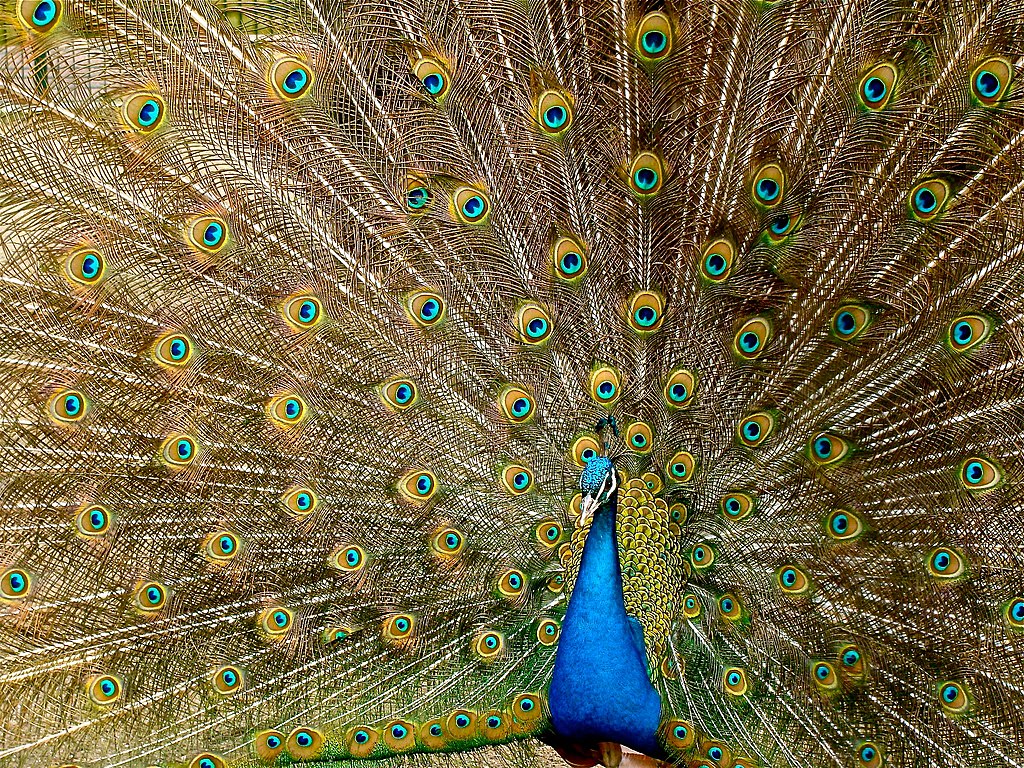
From an interesting 2013 paper: on peafowl courtship:
Conspicuous, multicomponent ornamentation in male animals can be favored by female mate choice but we know little about the cognitive processes females use to evaluate these traits. Sexual selection may favor attention mechanisms allowing the choosing females to selectively and efficiently acquire relevant information from complex male display traits and, in turn, may favor male display traits that effectively capture and hold female attention. Using a miniaturized telemetric gaze-tracker, we show that peahens (Pavo cristatus) selectively attend to specific components of peacock courtship displays and virtually ignore other, highly conspicuous components. Females gazed at the lower train but largely ignored the head, crest and upper train. When the lower train was obscured, however, females spent more time gazing at the upper train and approached the upper train from a distance. Our results suggest that peahens mainly evaluate the lower train during close-up courtship but use the upper train as a long-distance attraction signal. Furthermore, we found that behavioral display components (train rattling and wing shaking) captured and maintained female attention, indicating that interactions between display components may promote the evolution of multicomponent displays. Taken together, these findings suggest that selective attention plays a crucial role in sexual selection and likely influences the evolution of male display traits. Supplementary material available online at here. More. – Through their eyes: selective attention in peahens during courtship Jessica L. Yorzinski1,2,*, Gail L. Patricelli1, Jason S. Babcock3, John M. Pearson2,4 and Michael L. Platt2,4

A whole Darwinian thesis has revolved for decades around the idea that the peacock is showing the hen that he is more fit than other cocks because he is capable of dragging that train around. The obvious problem is, it’s unclear that the hen bird of a species not noticed for intelligence is doing any calculations that would justify his trouble. It’s a story in search of Darwin, and that thy are sure to find, wherever they look.
See also: New study: Females don’t choose mates
and
Can sex explain evolution?
Follow UD News at Twitter!
It would be interesting to know if the hens even notice that this bird’s feathers are a blank. And does it matter, as long as he hops around correctly and screams okay? (Hint: Maybe not.):